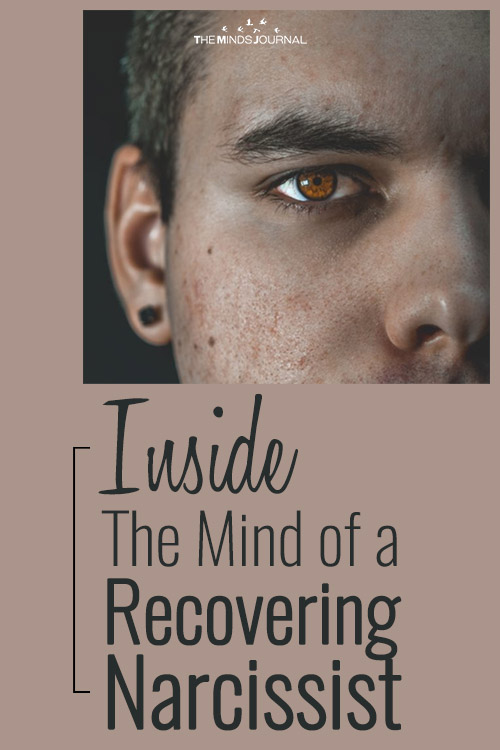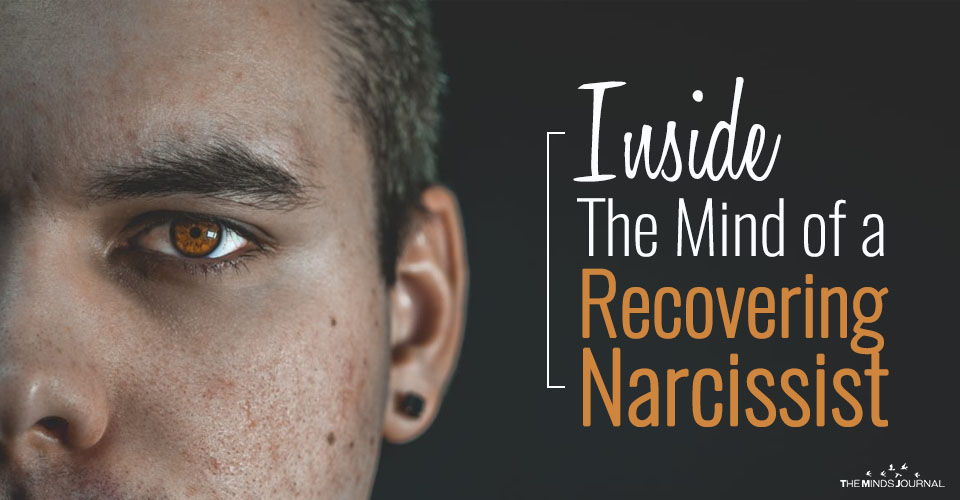Narcissism is something that you must have come across several times; be it in books, movies, television shows and even in the daily news. Being a narcissist comes easily to many people, and honestly, they do not have a problem being one. And why should they? By being a narcissist, they get to constantly focus on their needs and desires and how those can be fulfilled. They don’t think about other people or their wishes. What is there to not like?
Even though this can come across as an extremely tempting scenario, the truth is that narcissists find it tough to have long-term or permanent relationships owing to their behavior. When you only think about yourself and it is only about you and never the other person, how can anyone get along with you without getting badly hurt or neglected?
Confessions of a Recovering Narcissist
by Lion Goodman
I admit it: I am a recovering narcissist.
Much of my life energy was spent in pursuit of what I wanted, what I needed, and what I thought was best. “Narcissism” is a term from psychopathology, but it’s essentially a fancy term for extreme selfishness.
“A narcissist will use the phrase, “Get over it,” because, to them your feelings are trivial. If it is not about them, they are not interested.”
I had good relationships with great women – strong, smart sexy females who thought I was a great guy… until I suddenly withdrew, or made plans without checking with them, or took off to chase success, or an intense experience, or another woman. As long as my needs were getting met in the relationship, I was pretty happy. But when I wasn’t, I began looking around for the next opportunity to fulfill my desires.
My partners were not weak or timid – they often confronted me about my choices and behavior. But my answer was typical of an intelligent narcissist:
“If you want to be in a relationship with me, you have to accept me as I am.”
And they did – until they couldn’t take it anymore. I felt completely justified in my world-view. If they couldn’t love me as I was, there were plenty of women who would.
Each time I made a mess of a personal (or business) relationship, I felt bad.
I recognized the damage I was causing and began to look inward for answers in therapy, and in my men’s group. I read books and articles about narcissism and worked on changing my beliefs, my early programming, and my social conditioning. I knew I had to change. I wanted to learn to really love. To do this, I needed to learn how to be unselfish.
Selfishness appears in a wide spectrum, stretching from healthy self-care to moderate, socially acceptable personal goal achievement, to the extreme form of destructive narcissism – individuals who don’t care about the impact of their selfish behavior on others.
“Narcissists: The only people whose love leaves you feeling less confident, confused, and unhappy as the relationship progresses”
We are all selfish at times. When you focus on taking care of yourself or making yourself comfortable, this is a healthy form of selfishness, as long as it’s not taken to an extreme. Healthy people learn how to set good boundaries, and pursue their own interests realistically. They develop personal esteem, mature principles, and can accomplish their goals. From a solid sense of self, they can form deep relationships with others.
Children are naturally selfish and self-focused, but they are expected to grow out of it. They learn that other people exist independently, and have their own feelings and needs that must be taken into account. This early awakening enables a child to “play well with others.”
A healthy self-focused child can grow into a healthy adult, capable of being a loving parent, a compassionate community member, and a trustworthy citizen. If an individual can’t make that leap into the world of “others,” they become a narcissist.
To be successful in a relationship, you have to create a balance between self-oriented pursuits (such as self-care and self-development) with its opposite: care and respect for the interests and needs of the other.
We all want to be cared for. The trick is to learn to love as an activity you actively engage in, not a state you expect to be swept up into. In a mature relationship, each person takes full responsibility for the entire triumvirate: oneself, the other person, and the third entity: the relationship itself.
Relationships fail when partners focus too much on getting their own needs met, and not enough on the needs of the other. This results in arguments over whose needs are most important – which is almost always damaging.
Psychologically, it’s hard to focus on the other person’s needs when your own needs are screaming out to be cared for, but if you can, your relationship deepens, as does your capacity to love.
Because safety is a key to making a relationship work, narcissism is destabilizing and damaging. Someone who acts selfishly without regard for the other is unpredictable. At any time, they may suddenly focus on getting their own needs met, and withdraw from the two-ness of the relationship.
Ultimately, in my journey from narcissism to the healthy loving partnership, the woman I now love has been a teacher. She has shown that honoring the needs of a beloved other can bring with it a potent sense of satisfaction and well being, more so than any of the short-term fixes of following selfish impulses.
In her own words: “Men: Do you want your woman to really open to you? With her heart, mind and passionate body? The key to this reality is your honest, continuous care about her, and about your impact on her. You can tell when you have hurt her or harmed the relationship with your selfish behavior. She will react quickly, look unhappy, and express disappointment. She withdraws when you try to relate to her, closing down, disconnecting – the opposite of how you want her to be with you. You don’t need to be perfect or relate perfectly, you just need to own that you caused damage when it happens, get curious, and repair it as quickly as possible. If you make your woman’s happiness your priority, she will fill up with her own Feminine Spirit and want to give you her best all the time. You’ll get your deepest needs fulfilled as a result.”
Ultimately, narcissism is a win-lose game. But I have learned when I consider myself and others equally when I put my partner’s needs alongside my own, we both win. And that is a sweet place to land.

Here’s a video about Narcissist Personality Disorder which you might find interesting
“Narcissists try to destroy your life with lies because theirs can be destroyed with the truth”
Narcissism can never be a positive thing but always a negative thing. Being a narcissist might let you experience temporary gratification, but in the long run you will be left alone by the very people who loved you. Narcissistic behavior doesn’t just break someone’s confidence, it can also break their spirit and that is incredibly difficult to heal from.
Why make someone go through that? Especially if it’s the same people who love you and have always been there for you? Know and understand that the world does not revolve around you and that the feelings of other people matter too. The moment you start respecting their opinions and wishes, you will find much-needed stability in your life.
Confessions of a Recovering Narcissist
Originally appeared in The Goodmen Project
You may also like:
How I Survived A Narcissistic Mother and how you can do it too
Yes, Narcissists Can Change – Here’s How
5 Behaviors You Display Because You Were Raised By A Narcissist
4 Steps to Recovery After Childhood Emotional Neglect









Leave a Reply
You must be logged in to post a comment.